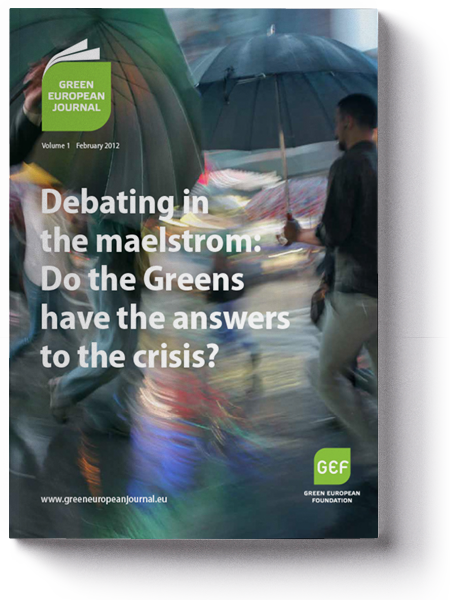How do we get out of the crisis? That is the main question that political figures are being asked today right across Europe. Maybe the software of ecology is the best adapted to get us out of the crisis?
Ecology’s first contribution is the surpassing of nationalisms. In these troubled times, there is a temptation to withdraw within ourselves. This is more than an illusion. It’s a trap. Regaining control of financial markets; finding an agreement to fight against climate change; or even protecting our industry from disloyal competition from countries without social and environmental norms will not be possible at a national level. The European Union is the only place in the world where Nation-states have begun to create a supranational institution and it is this endeavour that will help us out of the crisis. In order to do that, we must stop with sovereignist resistance. As such, the Union still does not have power to put an end to absurd fiscal competition between its States because they refuse to transfer what they consider to be a symbol of their sovereignty e.g. fiscal competition that enables CAC 40 companies in France to pay just 8% taxes on their profits, whilst SMEs pay three times that rate. If we were in a federal fiscal area, we would have a European tax on the profits of multinationals, and a tax on financial transactions, because the European Commission, like the European Parliament are in favour of it. By overcoming sovereigntism, Europe could finally become an area of protection and not simply a vast market in which there is competition that benefits the richest and the most powerful above all.
Ecology’s second contribution is the proposal of a green economy that creates virtuous circles. Innovating massively in green technologies is the only way to develop new jobs in industry. Large scale investment into building insulation creates hundreds of thousands of jobs that cannot be delocalised, whilst massively reducing our role in climate imbalance. Developing renewable energy will reduce the cost of energy and our dependence on other countries without having to bear the risks of a nuclear catastrophe. Furthermore, this can be done without increasing public spending as they are financially profitable investments that fund themselves.
Ecology’s third contribution is that it gives meaning. This crisis is the crisis of financial capitalism, which began its domination in the 1970s and which is imploding under our very eyes. However, it is also, paradoxically, the crisis of an overall excess that is pushing us to the limits of what the planet can withstand. This crazy race that is exhausting mankind and natural resources will inevitably push us towards another collapse, not financial, but environmental. This is why a way out of the crisis is not possible using past strategies. This new way forward is profoundly different from both the traditional right and the left; breaking with this collision course which is based on more consumption and growth of the GDP in rich countries and takes in to account the reality of a world with limited resources. The ancient world is dying. It is up to us to take part in creating a new one.

